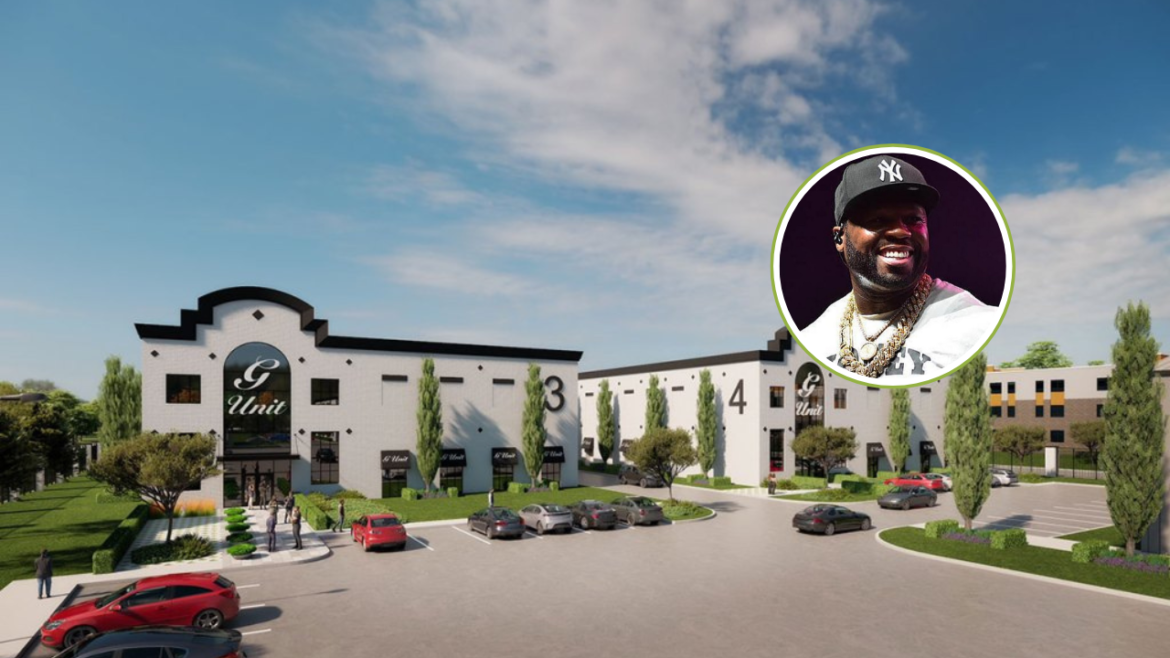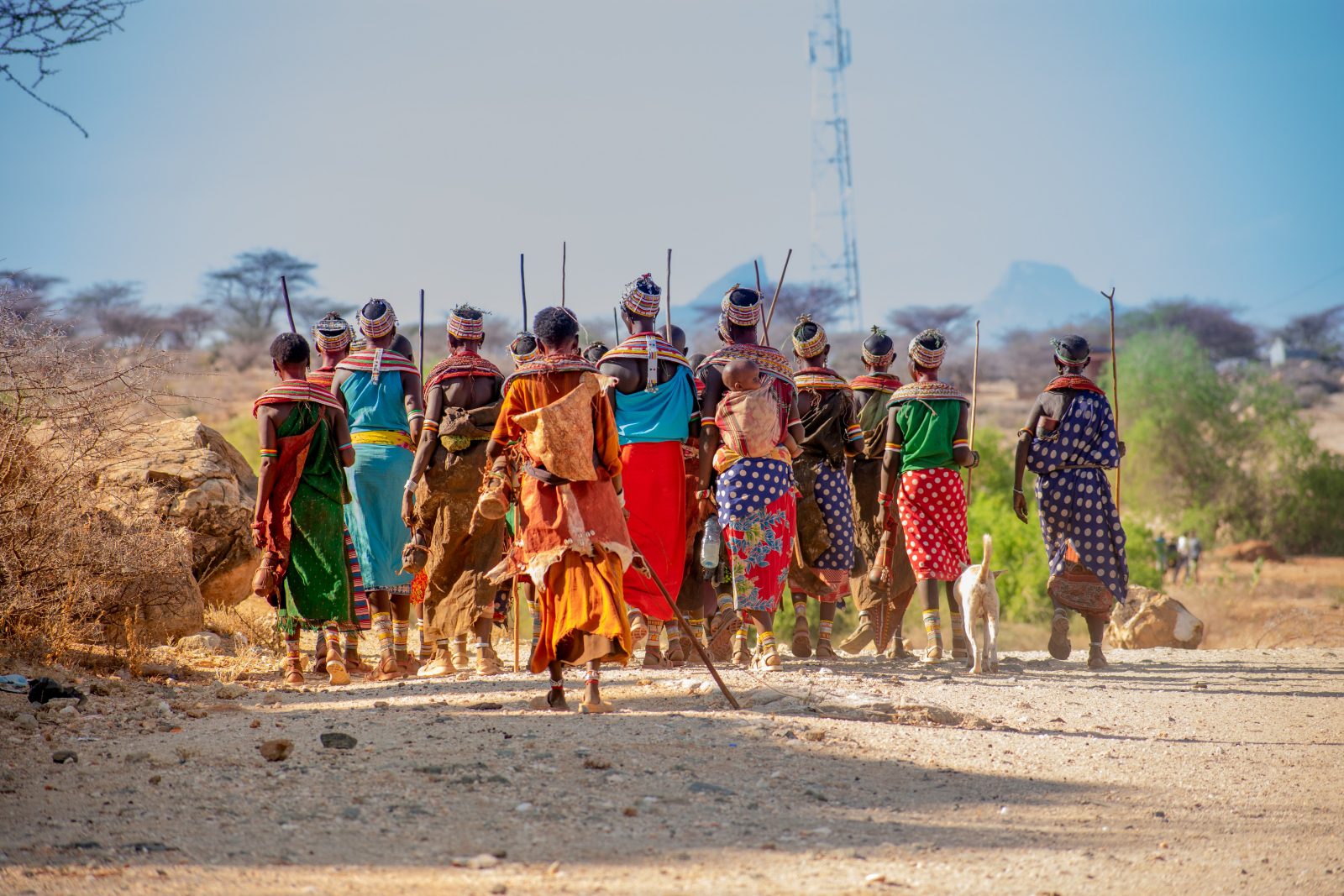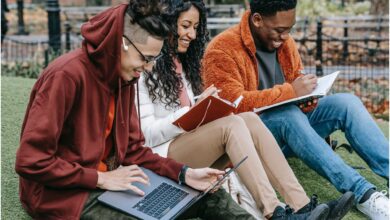NAACP Amos C. Brown Student Fellows Return from Transformative Journey through Ghana
The fellows current college students and graduates were selected from a highly competitive pool of applicants, and hail from communities across the country from New York, Georgia, and California to Michigan, Utah, and Texas
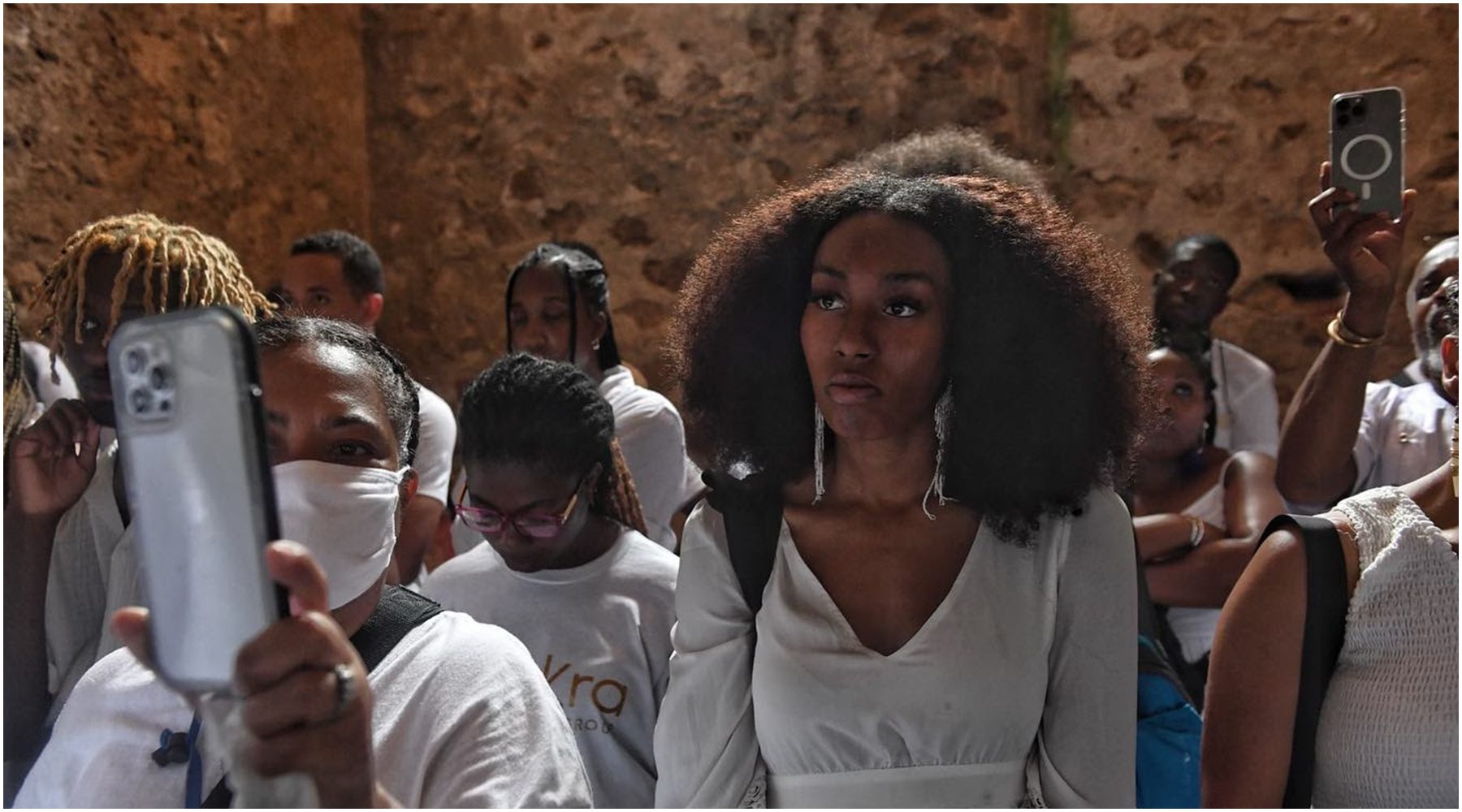 The Amos C. Brown Student Fellowship to Ghana is the first program of its kind to be powered by the NAACP. The fully funded 10-day experience, from July 31- August 10, took 50 multicultural college students, young adults, and seminarians between the ages of 18 and 25 from the United States to Ghana for an experiential learning opportunity, at no cost to the fellows.
The Amos C. Brown Student Fellowship to Ghana is the first program of its kind to be powered by the NAACP. The fully funded 10-day experience, from July 31- August 10, took 50 multicultural college students, young adults, and seminarians between the ages of 18 and 25 from the United States to Ghana for an experiential learning opportunity, at no cost to the fellows.
The fellows current college students and graduates were selected from a highly competitive pool of applicants, and hail from communities across the country from New York, Georgia, and California to Michigan, Utah, and Texas. The program was conducted alongside The Church of Jesus Christ of Latter-Day Saints and led by The Adinkra Group, global leaders of African birthright journeys.
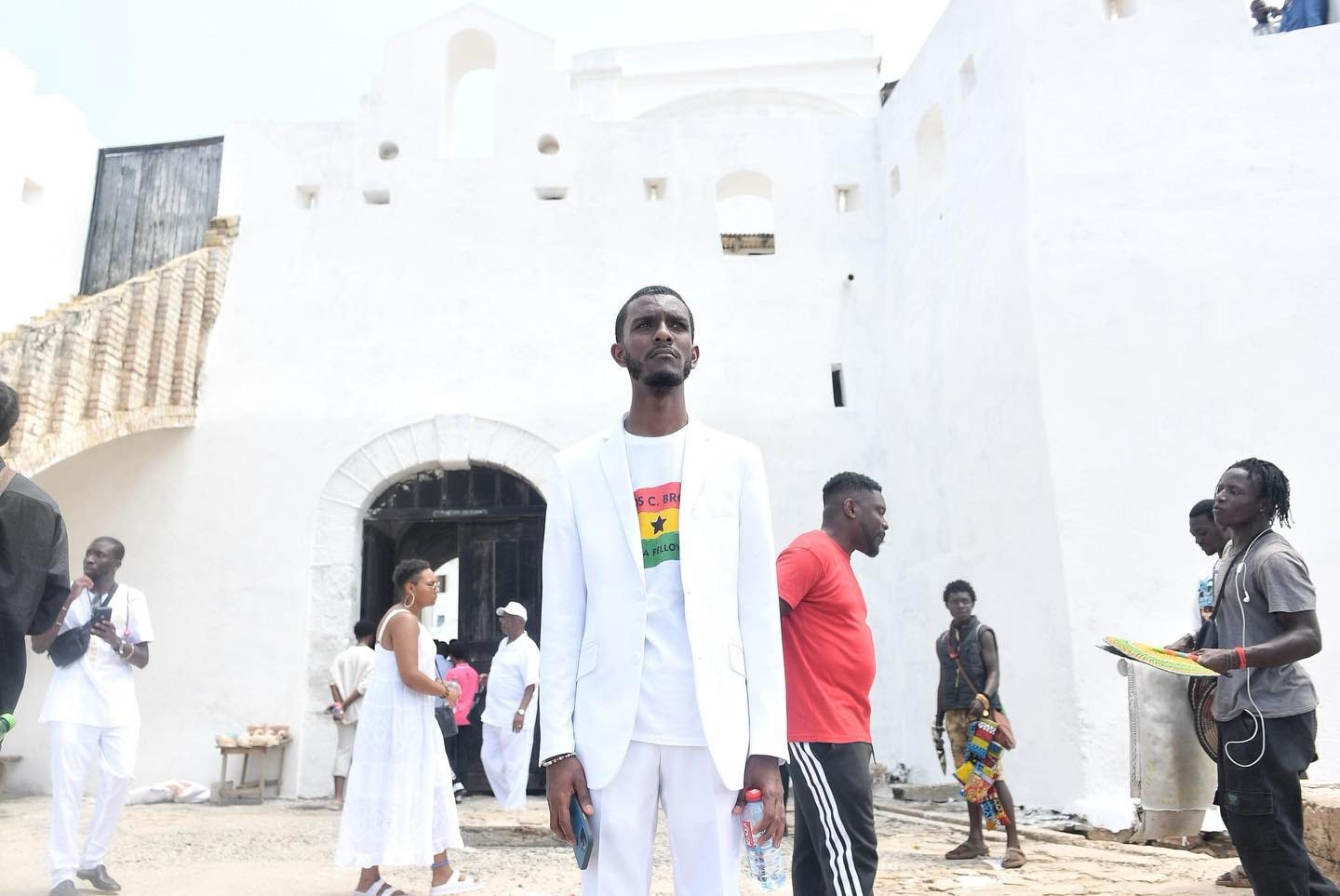 “For myself, the NAACP staff, and our Amos C. Brown Student Fellows, the past ten days in Ghana have been transformative,” said Derrick Johnson, President and CEO of the NAACP. “As our fellows traveled throughout Ghana, they were able to examine their ancestry and deepen their understanding and appreciation for their identities in ways not possible outside of this land.
“For myself, the NAACP staff, and our Amos C. Brown Student Fellows, the past ten days in Ghana have been transformative,” said Derrick Johnson, President and CEO of the NAACP. “As our fellows traveled throughout Ghana, they were able to examine their ancestry and deepen their understanding and appreciation for their identities in ways not possible outside of this land.
I hope that every young person who came along on this journey has been empowered in new ways to own their identity and step into their power – and are now emboldened to drive forward progress in their communities toward true equality and justice.”
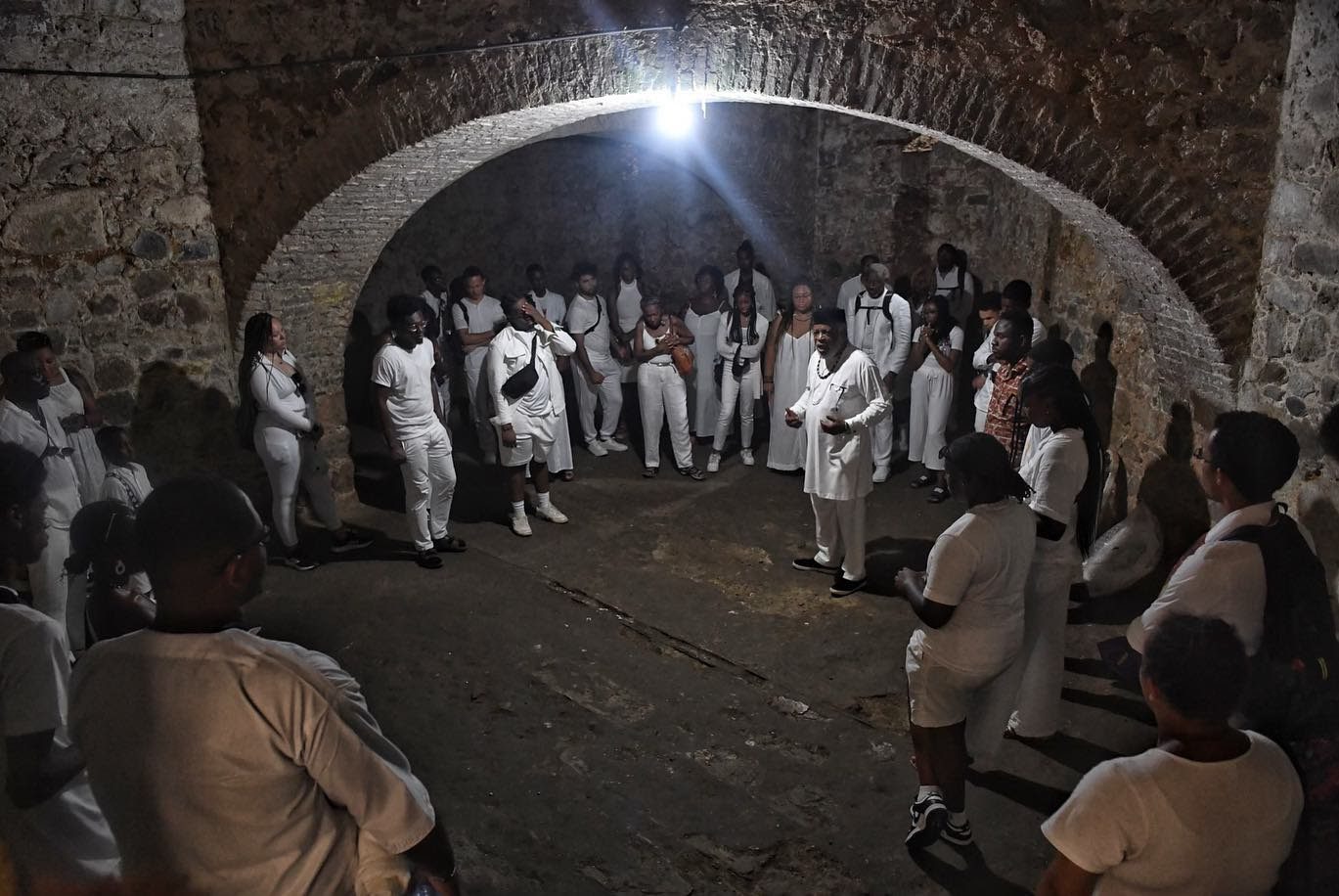 While in Ghana, fellows were taken on an emotional and educational journey through the discovery of their identities, immersing in Ghanaian culture and learning about and discussing the deep ties that bind them to the land, their ancestors, and their heritage.
While in Ghana, fellows were taken on an emotional and educational journey through the discovery of their identities, immersing in Ghanaian culture and learning about and discussing the deep ties that bind them to the land, their ancestors, and their heritage.
Participants traveled to Cape Coast, retracing the passage of enslaved people through Ghana and stepping into the dungeons that trapped millions of their ancestors. Fellows visited the W.E.B. DuBois Memorial Centre to reflect on his efforts to connect our world with the African diaspora, how they can continue these efforts today, and engaged with student peers in Accra to develop flourishing cross-Atlantic relationships that will keep students directly connected to their roots for decades to come.
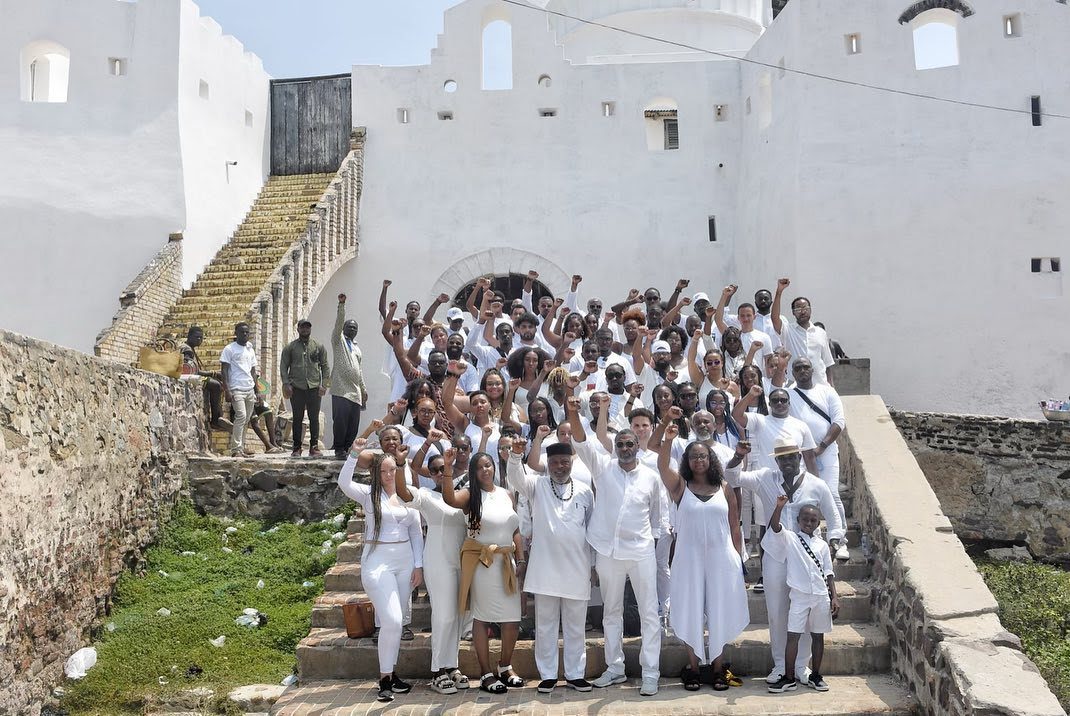 Throughout their visits, participants had the opportunity to grapple with and have critical, in the moment conversations about their experiences – many even learning that they shared the same DNA as a colleague or co-participant – and how they can transform how they embrace their identities to be stronger social justice leaders and change agents in their communities.
Throughout their visits, participants had the opportunity to grapple with and have critical, in the moment conversations about their experiences – many even learning that they shared the same DNA as a colleague or co-participant – and how they can transform how they embrace their identities to be stronger social justice leaders and change agents in their communities.





